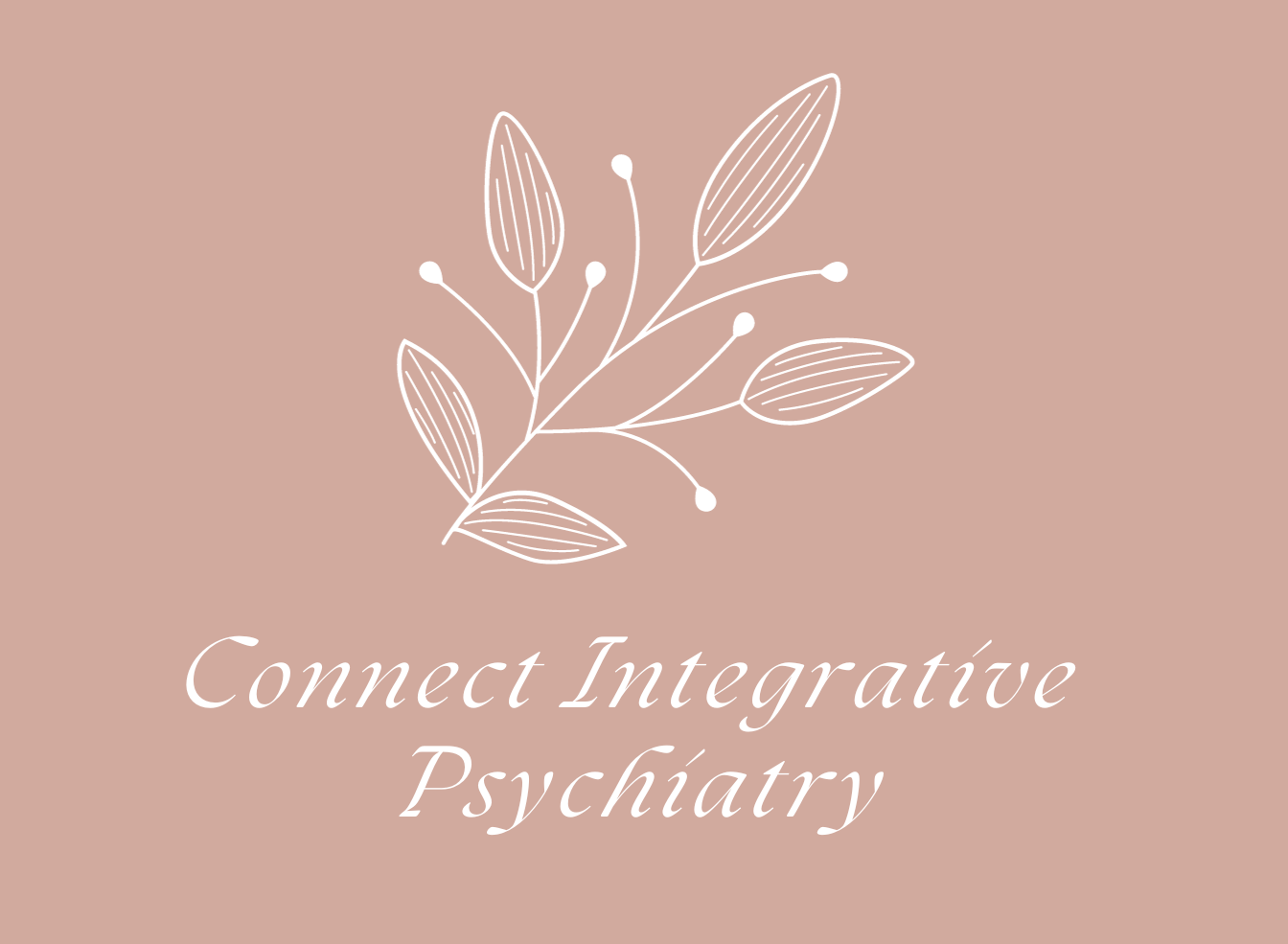Integrative Psychiatry Explained — Treating Mind, Body, and Spirit
Modern psychiatry is evolving. Many women seek healing that goes beyond medication alone — an approach that honors the whole person. Integrative Psychiatry brings together science, compassion, and spirituality to address the root causes of emotional distress, not just the symptoms.
At Connect Integrative Psychiatry, we combine evidence-based medicine with personalized interventions that support your mind, body, and spirit.
What Is Integrative Psychiatry?
Integrative Psychiatry looks at how biological, psychological, social, and spiritual factors interact to influence mental health.
It often includes:
Conventional psychiatric care (medication management, therapy)
Nutritional and lifestyle support
Mind-body practices such as mindfulness and breathwork
Labwork to address any deficiencies and supplements to support healing
This approach helps women feel more balanced and empowered in their healing process.
How It Differs from Traditional Psychiatry
Traditional psychiatry often focuses on diagnosis and medication.
Integrative Psychiatry, by contrast:
Searches for root causes (e.g., hormonal changes, nutrient deficiencies, chronic stress)
Uses lifestyle and relational healing as medicine
Encourages collaboration — you’re part of the treatment team
This whole-person focus can be transformative, especially for women navigating anxiety, depression, PMDD, bipolar disorder, OCD, or perinatal and postpartum challenges.
An Integrative Approach to Common Conditions
| Condition | Integrative Focus |
|---|---|
| Anxiety & Depression | Mindfulness and relaxation techniques; nutrition and supplements that support mood and gentle medication management. |
| PMDD (Premenstrual Dysphoric Disorder) | Hormone balance and sleep optimization; nutritional support and targeted supplements; stress resilience and lifestyle adjustments. |
| Postpartum Mood Disorders | Compassionate emotional support; integrative therapy and community connection; lifestyle guidance for recovery and rest. |
| Bipolar Disorder | Mood stabilization and medication management; nutritional psychiatry and rhythm regulation; integrative self-care routines for balance. |
| OCD (Obsessive-Compulsive Disorder) | Exposure-based therapy and mindfulness; nervous system regulation and grounding techniques. |
A Gentle Invitation
If you’ve been searching for a mental health approach that respects your biology and life story, Integrative Psychiatry may be the path forward.
Our practice offers individualized treatment plans that blend:
Medical expertise — safe and personalized medication management
Therapeutic connection — trauma-informed, evidence-based counseling
Lifestyle and nutrition guidance — restoring balance in the body and mind
Many of our patients are women navigating PMDD, perimenopause, perinatal and postpartum challenges, anxiety, depression, bipolar disorder, or OCD — and they find that whole-person care brings lasting relief, not just short-term symptom management.
At Connect Integrative Psychiatry, healing is not about perfection — it’s about alignment. When your lifestyle, heart, body, and emotions begin to move in the same direction, you rediscover peace that lasts.
📍You can also read about our Reproductive Psychiatry Services to learn how we support women through pregnancy, postpartum, and hormonal transitions.

